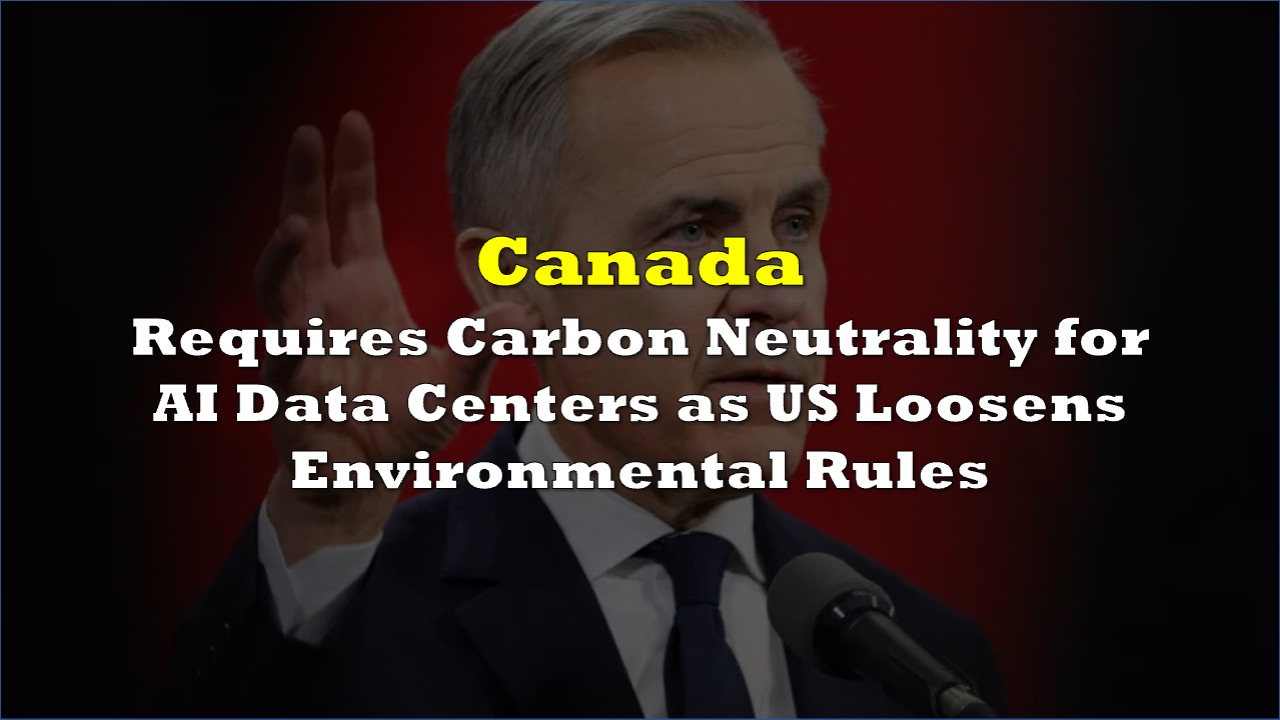Canada and the United States are taking sharply divergent paths in the global race to attract AI data centers, with Canadian Prime Minister Mark Carney declaring Saturday that companies must buy carbon credits to achieve carbon neutrality while the Trump administration dismantles environmental regulations to accelerate construction.
Carney emphasized the need for carbon pricing and acknowledged the European Union for implementing a Carbon Border Adjustment Mechanism. The statement comes as countries worldwide compete to attract billions of dollars in AI infrastructure investment.
The policy aligns with Canada’s revamped Output-Based Pricing System, which requires heavy industry to meet emissions benchmarks or purchase carbon credits. Under the system, companies that exceed industry emissions standards must either buy credits or pay a carbon price that starts at $65 per tonne in 2025 and rises to $170 by 2030.
In July, the White House released an AI Action Plan calling for reduced regulations under the Clean Air Act, Clean Water Act, and other environmental laws to expedite data center construction. Trump signed executive orders directing federal agencies to streamline permitting reviews and utilize federal land for rapid data center development.
Despite Carney’s environmental requirements, the Canadian government is providing substantial financial support for AI infrastructure. The Canadian Sovereign AI Compute Strategy commits up to $700 million through the AI Compute Challenge to leverage investments in new and expanded data centers. Additionally, the government is developing a program to provide up to $15 billion in loan and equity investments for AI data center projects receiving investments from Canadian pension funds.
Industry analysts note Canada offers competitive advantages beyond subsidies. Quebec offers data center electricity rates 60% lower than Alberta’s rates due to abundant hydroelectric resources. British Columbia’s power grid sources 93% of its electricity from renewable energy under the province’s Clean Energy Act, allowing operators to meet net-zero targets without complex off-site power purchase agreements.
The Trump administration prioritizes speed and deregulation, removing environmental barriers to accelerate construction timelines. Canada positions itself as offering clean energy infrastructure and government financial support while requiring environmental compliance.
Mark Carney says AI data centres should be carbon neutral.
— Brian Lilley (@brianlilley) November 22, 2025
They should buy carbon credits.
That won’t be happening in the United States.
Good luck attracting such centres to Canada without government subsidies.
pic.twitter.com/62PZHeJGP9
The competition for AI data center investment has intensified as artificial intelligence applications demand unprecedented computing power and electricity. By 2030, data centers will account for 9% of worldwide electricity consumption, according to recent sustainability research.
Canada currently has 112 existing data center facilities with 11 under construction. The country’s data center market reached $11.46 billion in 2025 and will reach $22.24 billion by 2030.
Information for this story was found via the sources and companies mentioned. The author has no securities or affiliations related to the organizations discussed. Not a recommendation to buy or sell. Always do additional research and consult a professional before purchasing a security. The author holds no licenses.









